Wedding season has started! In Israel, most weddings take place during the summer and the beginning of the autumn, and in this article, we want to share with you some very relevant Hebrew vocabulary related to weddings.
It doesn’t matter if you are going to be the one with the white dress or the one who’s going to break the glass. It doesn’t matter if it is actually your son or daughter taking this big step. Today, you’ll learn some important Hebrew words connected to this moment of happiness, joy, and blessings.
Let’s begin with the very basics before we swim into the world of wedding dresses, bride veils and dance floors. Do you know how to say wedding in Hebrew? Wedding in Hebrew is חתונה (pronounced: chah-tuh-nah), and several thousand are celebrated every year in the wide variety of venues available in Israel… oh, venue! Let’s put it on the list as well.
Just in case you didn’t know כלה (pronounced: kah-lah) is bride, and חתן (pronounced: cha-tan) is groom.
Preparing and organizing a wedding isn’t the easiest of tasks. But learning how to say each thing in the language of our matriarchs might be easier than what you think if you decide to learn Hebrew in one of our online courses. So make yourself comfortable, serve yourself a glass of wine and another for your couple and invite them to learn this list, together.
Wedding-related words in Hebrew: How do you say veil, dancefloor, dress, and flowers?
Most of the words in Hebrew that are related to a Jewish wedding, you most likely already know. Therefore, we are not going to focus on words like חופה (pronounced: chu-pah) or כתובה (pronounced: keh-tuh-bah) in this romantic article. Instead, we will offer you a list of Hebrew words to translate those very important elements of the most important day of your lives (we are speaking in plural assuming that you’re already reading this with your significant other). Are you ready? Here we go.
Wedding Dress
In Hebrew, a wedding dress is שמלת כלה (pronounced: seem-lat kah-lah) and it literally means “the dress of the bride”. As in many other places in the Hebrew language, once again, this word puts the focus on the bride herself and not on the wedding event.
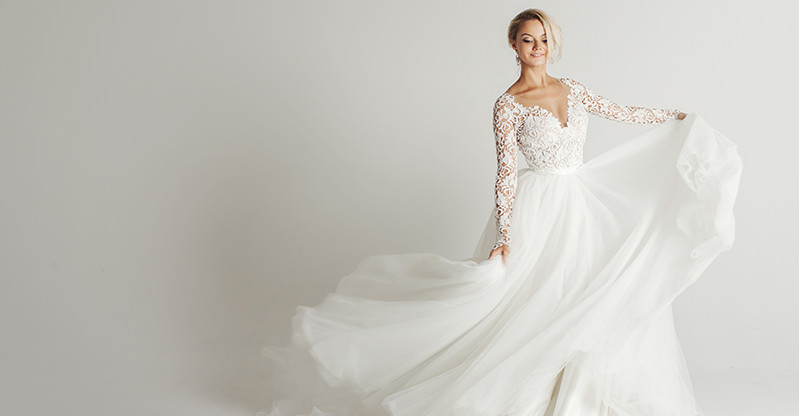
Bride’s Veil
The veil is one of the most significant elements of the bride’s outfit, at least for the traditional Jewish ceremony. Veil in Hebrew is הינומה (pronounced: he-nuh-mah) and you can find a number of lengths, textures, and materials. As long as it covers the face of the bride, allowing the husband/other bride to see just enough of the pretty face of his/her significant other, the הינומה works.
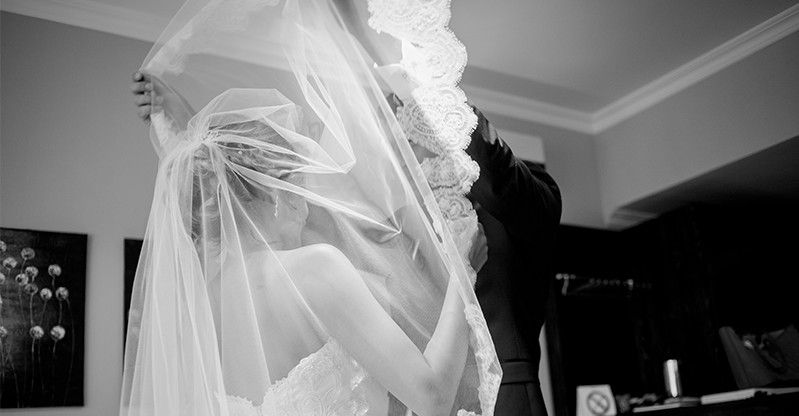
Dancefloor
Such an important part of your wedding, isn’t it? Here is where all the crazy dancing and the chair-lifting tradition is going to take place. Dancefloor in Hebrew is רחבת ריקודים (pronounced: reh-cha-vat ree-kuh-deem), and if you want to make it a fun spot of your event, it is not only the type of music that is important (although, if you need some recommendations of Israeli music, check out this article), but also the party novelties you are going to offer your guests. Learn how to say both party, novelties and guests with a little sav-lah-noot a little way down the road.
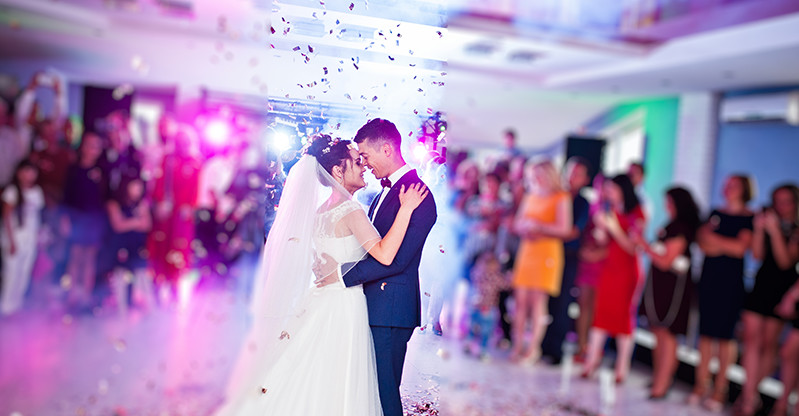
Wedding Venue
One of the most tiring parts of organizing a wedding is deciding on a venue that has everything you want to make this day special, unique and breathtaking. In Israel, you can find a variety of venues for different styles and tastes.
From spectacular places in front of the sea in Netanya to magical forests outside of Jerusalem, many wedding venues are available. Wedding venue in Hebrew is אולם חתונות (pronounced: oolam cha-tu-not), and even if not all of them are actually “halls”, as the literal translation says, that’s the best way to refer to it. But be ready, if you do a quick Google search, way too many options will appear and more than one of them will make your grandma say “oy vey!”.
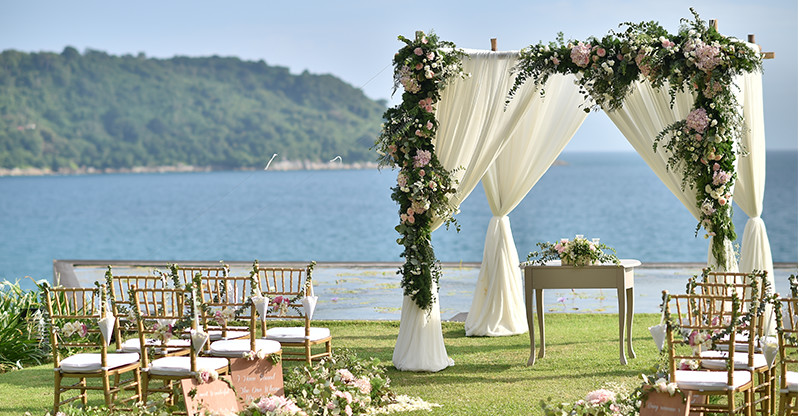
Flowers and Bouquet
Have you seen a bride without a bouquet of flowers? What is she going to throw to that bunch of single ladies waiting to get a ring then? Flowers in Hebrew is פרחים (pronounced: prah-cheem) and a bouquet of those is called זר (pronounced: zer).
If you want to be more specific and ask for a bride’s bouquet, think simple! Just add the word bride to the word זר and you’ll be ready: זר כלה and you are done.
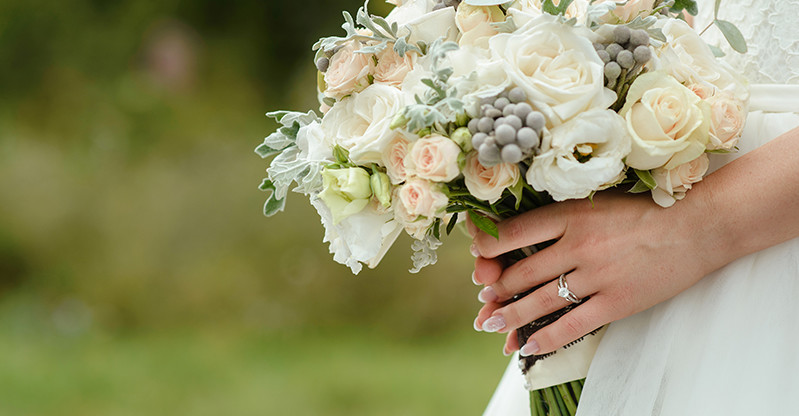
Groom’s Suit
We didn’t mention this specific item in the article about “Clothing in Hebrew” we published a few weeks ago because we were saving it for a special occasion, and what’s more special than a wedding! Suit in Hebrew is חליפה (pronounced: cha-lee-fah) and in case you were looking to wear a tuxedo, then you can relax since you won’t have to learn any new words; tuxedo in Hebrew is טוקסידו and guess how you pronounce it… yes! Indeed. Tuxedo in Hebrew is pronounced in the exact same way you say it right now. Are you ready to look like James Bond? As Barney Stinson would say: Suit up!

Party Novelties
This is an interesting word. Party novelties in Hebrew is גימיקים (pronounced: ghee-me-kim) and they can turn the most boring of parties into a colorful, fun, event full of laughter. Masks, Hawaiian necklaces, fun huts, balloons, Israel flags, and cool plastic ties will do their job at your wedding. Give it a try and שהיה לכם כיף. We’re sure it will be like that.
Subscribe to our newsletter
Learn Hebrew slang, take a virtual tour across Israel, discover the best local food and so much more
Guests
Many people want a simple, small wedding… and many others want events as big as the ones they have at the White House. No matter how many of them you want, you’ll always have at least a few guests. Guests in Hebrew is אורחים (pronounced: or-chim) and in case you want to have only one guest the right Hebrew word for you to use would be אורח (pronounced: oh-reh-ach) or אורחת (pronounced: oh-rah-chat) depending on the gender of the lucky person you decided to invite.
Learn some Hebrew, come to Israel, find a significant other and get married with new words you just learned
Learning Hebrew is not as hard as it might seem. Today, you can even learn it from the comfort of your own home, in a live online Hebrew course. The Rosen Hebrew School offers you this unique possibility. Take the opportunity to open new doors to options you didn’t even know existed. Are you ready to master your Hebrew? Here we are, ready to help you do so. Oh! And by the way… Mazal tov on your חתונה!









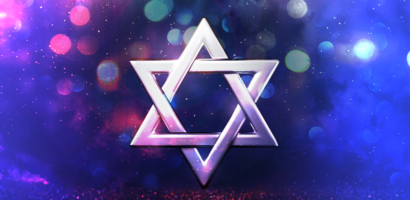



 Available on WhatsApp
Available on WhatsApp
Join the conversation (No comments yet)